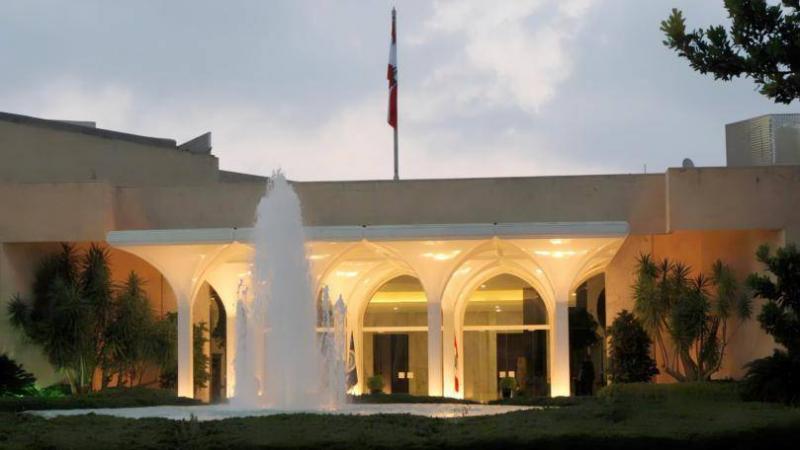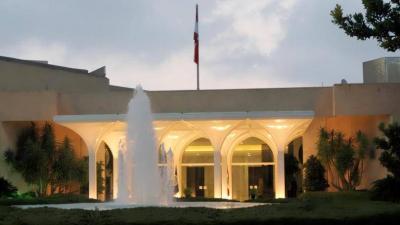The country is preparing to enter a new phase starting from November 1, during which the presidential seat will be vacant. Constitutional debates surround the government's powers, as it will assume some of the presidential powers not directly attached to the person of the president. The Parliament will turn into a stage for attempts to reach an agreement on a figure who can minimize the duration of the presidential vacancy, which would ensure the regularity of political life and complete the constitutional institutions, currently threatened by paralysis exacerbating the crises affecting the country and its people.
In light of this equation, political and diplomatic references, through "Al-Markazia", have contemplated several expected scenarios in the upcoming phase, with existing flaws and negative aspects prevailing over any possible positive steps that could have been achieved if mediator communications had succeeded in navigating through the constitutional milestones that should have been completed. The presidential election within the constitutional timeframe was disregarded, preventing the growth and proliferation of crises. At the very least, a government should have been formed with full constitutional specifications to avoid the Byzantine constitutional debate that has been mocked by figures hiding behind certain constitutional sites, despite the weak arguments of some who try to market certain actions and clad them in the lost legal and constitutional attributes, which can only be imposed through "de facto" authority, creating dangerous precedents experienced by the country previously.
Diplomatic and political references warn against the danger of further betting on certain expectations that cannot be fulfilled solely to satisfy personal hopes and desires, potentially leading to deeper fears across various levels. The most dangerous of these is the persistent paralysis within the authorities and constitutional institutions, threatening the remaining external manifestations amidst financial and economic crises that have brought the country close to declaring itself a rogue and bankrupt state.
From these indicators, monitoring references do not hide their fears that the country may reach phases lacking the constitutional mechanisms necessary to restore constitutional order. Consequently, the question arises about the potential for the president to carry out his threat of issuing a decree accepting the government's resignation just hours before his term ends, without it being accompanied by related decrees naming the new prime minister and appointing new ministers and distributing portfolios.
Several scenarios are in circulation, which could lead to various outcomes, including:
- Neither the legislative nor the executive authorities recognizing the content of the intended decree, resulting in the continued operation of Parliament to elect the president before engaging in any other actions while the prime minister remains in his position, managing affairs and presiding over ministerial committees formed in lieu of the Cabinet performing its constitutional duties.
- Some ministers might comply with the president's decree and boycott Cabinet meetings if the prime minister calls for any gatherings while continuing to perform their ministerial duties normally, opening discussions on challenging options leading to many unanswered questions.
- A vacancy at the presidency could compel the prime minister to adhere to the conclusions of the president's decree. How would the country operate without a president in Baabda and no prime minister in the Serail? Who would assume the responsibility of managing the country and its people?
Beyond these three options, many others could be elaborated, including various scenarios not addressed by the law or constitution, leaving the concerned references unable to interpret them as they fall outside what is specified in either document. Everyone recognizes that the constitution does not acknowledge vacancies in any constitutional roles; just as the deputy speaker of Parliament replaces the speaker in their absence, the government assumes the president's powers if the presidential seat is vacant, which applies to all governmental institutions across sectors.
Thus, if all these sites are dysfunctional, can anyone describe the condition of the country under any of these expected options? Who would bear the responsibility for the outcomes? Is there anyone with the decisive authority to find solutions to the deep dilemmas resulting from the political bickering that has led the country to its current state? Who will have the final say, and will local authorities emerge to fill the void created by the absence of constitutional institutions? Will there be a figure to manage the affairs of party, regional, and sectarian groups, assuming attempts to frame what occurs within its sectarian and religious backgrounds as some are attempting to draw the country into such a scenario?
Until developments provide answers to any of these questions, it is rational to fear for the future of the country and its institutions, which threatens the very existence of the entity. Additionally, another question may arise, likely the most sensitive and dangerous: how will financial, monetary, and judicial authorities react? Who will have the command to manage military and security institutions? Can any political or legal "superman" describe what the scene will look like for the country?




